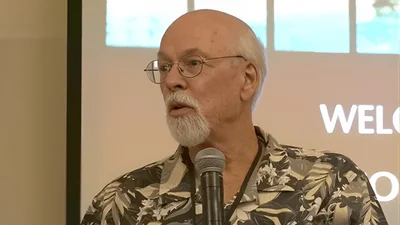New Mexico Environment Department Cabinet Secretary James Kenney stood before the U.S. Senate Committee to raise concerns about the overwhelmingly high quantity of certain chemicals, called PFAS, that threaten drinking water sources across the state.
“Simply stated, the mission of my department is to protect the health of New Mexicans," Kenney said. "Reality is, I can't do so when it comes to PFAS. It's not for lack of scientific data or remedial technology, but we're lacking a federal regulatory framework for PFAS.”
PFAS stands for perfluoroalkyl and polyfluoroalkyl substances found in the bodies of people and animals all over the world, as well as in ground and surface water. The man-made chemicals have been involved in industrial use since the '50s, including food packaging, cleaning products, carpets, firefighting foam, and more.
Recent studies, however, have proven the substance’s risk of harming health, indicating that reproductive organs, childhood development, cholesterol, the immune system, and cancer risk are all affected.
The contamination is considered a top priority for New Mexico, according to the New Mexico Environment Department. Kenney explained that though initiatives were formed by the EPA five years ago, the organization has failed to continue those efforts in recent years, leading to no healthy drinking water regulatory certainty.
"No person should suffer the negative health effects of PFAS, not in New Mexico or elsewhere, which is why states have been taking action to protect your communities,” Kenney said.
The Resource Conservation and Recovery Act allows the EPA to limit hazardous waste across a series of processes, including treatment, storage, and waste proposal. Referencing an example of a dairy farmer based in Cannon Air Force Base who brought a large quantity of PFAS-contaminated cow carcasses to New Mexico to depict the statewide issue, the representative calls for Congress’s support on the matter, demanding aid in the process of discarding PFAS and other toxic wastes to eliminate the health risks correlated with it.
“This is clearly a public health, environmental and economic crisis for New Mexico, and other states," Kenney said. "And you don't have to live near an Air Force base to be concerned about exposure."








